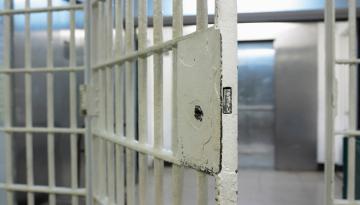
Psychologists are turning away as many as 60 clients a month because they have no space to see them.
They say the situation is heartbreaking and they worry about what is happening to those they can not help.
Porirua and Wellington clinical psychologist Annie Talbot feared the lack of care in the community would lead to a tsunami of serious mental health problems.
"It is a daily occurrence of having to turn people away and me having to actually say 'I don't think I can run a wait list anymore' because I don't know when I am going to finish up with clients or when I'll have capacity," she said.
Nelson psychologist Kris Garstang said demand was at an all-time high as the stigma about seeking help for mental health problems fell away.
She struggled to deal with all the emails, phone calls and texts from people so had a phone message saying she could not take more clients.
Wellington psychologist Giselle Bahr turned away about 15 people a week and said her colleagues tried to help where they could but it was hard because everybody else was full.
The private psychologists, who work in the community, mostly dealt with people who were not acutely unwell but could be dealing with conditions like anxiety or depression that could have a big impact on their lives and their families.
Dr Talbot said they were incredibly courageous and tended to put their best foot forward.
"But often it's at home, or those quiet places where no one can see, that things start to fall apart. If that's left too long without a proper scaffold or support around it, it can really lead to that serious or risky end," she said.
The College of Clinical Psychologists discovered the issue after surveying its members.
Executive advisor Paul Skirrow said he was shocked at how many were having to turn people away, and the situation was a barometer for the overall state of the mental health system.
"The private system always used to be the overflow from the public system, but now we're getting to the point where the overflow is overflowing," he said.
The government promised an overhaul of the country's mental health system but very little concrete has changed.
There were a few more training places opened up for clinical psychologists but not nearly enough, especially considering there were a lot of people keen to do the training, Dr Skirrow said.
Training more would be a major practical step to helping solve the problem, he said.
"It's going to take three years at least to training a psychologist from graduate level ... so we need to start right now," he said.
Anyone struggling to get help should put themselves on a wait list, even if it was a long wait, to get help when it became available or to look for other practitioners on the College's website, he said
In the meantime, they could seek support from their GP.
Where to find help and support:
Shine (domestic violence) - 0508 744 633
Women's Refuge - 0800 733 843 (0800 REFUGE)
Need to Talk? - Call or text 1737
What's Up - 0800 WHATS UP (0800 942 8787)
Lifeline - 0800 543 354 or (09) 5222 999 within Auckland
Youthline - 0800 376 633, text 234, email talk@youthline.co.nz or online chat
Samaritans - 0800 726 666
Depression Helpline - 0800 111 757
Suicide Crisis Helpline - 0508 828 865 (0508 TAUTOKO)
Shakti Community Council - 0800 742 584


